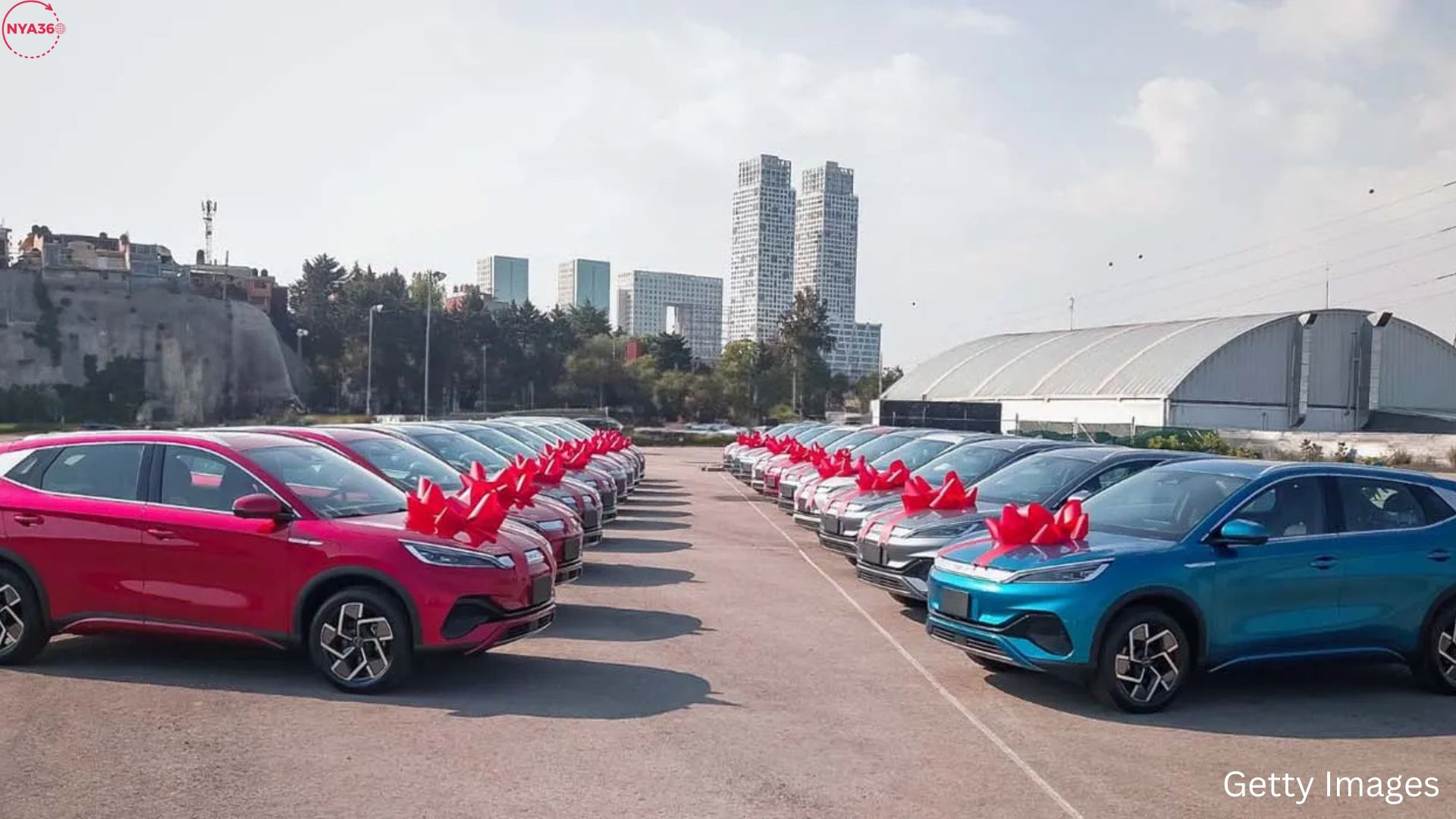Surprisingly, BYD, a prominent Chinese electric vehicle (EV) maker, apparently had its approval to construct a new plant in Mexico but was pushed back. Bloomberg reports that this move is a direct reaction to the rising trade tensions between the US and China, as Beijing is understandably concerned about the possibility of technological leaks to its geopolitical competitor. The action highlights the growing impact of the U.S.-China trade war on U.S. friends and trading partners, such as Mexico, who are being dragged into the high-stakes struggle for technical dominance.
A Lost Chance: The BYD-Mexico Scheme
Build Your Dreams, or BYD for short, is an electric vehicle (EV) company based in China that has quickly become a worldwide powerhouse, competing with Tesla in terms of both innovation and market dominance. With an expected yearly production of 150,000 automobiles and the creation of more than 10,000 jobs, the Mexican plant was poised to revolutionize the industry. As a result, Mexico’s economy got a major boost, and the nation is now a major participant in the worldwide supply chain for electric vehicles.
But Beijing’s unwillingness to approve the project has been a huge setback. To safeguard national interests and preserve control over innovative technology, the Chinese government mandates that domestic automakers seek central government authorization before exporting production. This means that BYD will have to wait for the approval of Beijing, which is now impossible to come by.

Chinese Reluctance: Preserving Valuable Technological Assets
Concerns about technology breaches are valid reasons for China’s reluctance. As a technological treasure in China’s arsenal, BYD is more than simply another automaker. Particularly in the areas of autonomous driving systems and rapid charging capacities, the business has achieved revolutionary strides in electric vehicle technology.
Built on the DeepSeek AI platform, BYD has achieved a remarkable feat with its new self-driving technology. The system’s compatibility with all vehicle models makes it groundbreaking and sets the stage for it to become a standard in the industry. Even more impressive is BYD’s revolutionary fast-charging technology: in as little as five minutes, their vehicles can refuel to a range of 400 kilometers. To give you an idea of scale, at the moment, Tesla’s Superchargers can add about 280 kilometers to your range in just 15 minutes. When compared to its competitors in the electric vehicle market, BYD’s technology is light years ahead of the pack because of its superior speed and efficiency.
China is justifiably guarding its intellectual property as these innovations are expected to be available to consumers as early as April. People are worried that BYD’s confidential technology could be leaked to American rivals or authorities if the company were to set up shop in Mexico, which is so close to the United States. Beyond being just a business, BYD is a strategic asset and China’s secret weapon in the international competition for electric vehicles.
A Trade War’s Unintended Consequences: A Broader Perspective
The global supply chains are being transformed as a result of the U.S.-China trade war, as demonstrated by China’s decision to block BYD’s Mexico plant. This geopolitical tug-of-war has escalated from a bilateral disagreement to one that involves third-party nations, with Mexico taking the worst hit.
There is a lot at risk for Mexico. Its economic growth would have been anchored by the BYD plant, which would have created thousands of jobs and solidified the nation’s position as an electric vehicle manufacturing powerhouse. This opportunity will pass Mexico by unless Beijing gives its blessing, and the Mexican economy will have to deal with the consequences. Furthermore, Mexico is not the only country in this regard. When the United States and China become embroiled in a trade war, it affects more than just the two countries directly involved. The situation is becoming more complicated and unpredictable for the countries caught in the middle as the two giants continue to secure key technology.

Embracing Automation: A Look Inside BYD’s Manufacturing Facilities
In addition to the scientific advancements it has made, BYD’s plants showcase China’s exceptional manufacturing capabilities. Modern robots and AI-driven systems integrate seamlessly throughout these facilities, greatly automating and streamlining manufacturing. With this degree of automation, BYD can cut costs and increase scalability while simultaneously increasing efficiency and decreasing dependence on human labor. Potentially establishing a new benchmark for the automobile sector in North America, this innovative manufacturing ecosystem would have been brought to the region if the Mexico facility had proceeded. Nevertheless, given Beijing’s present position, this goal is still on hold, leaving Mexico to lament the missed opportunities.
The Global EV Race: China vs. the U.S.
The BYD-Mexico debacle is representative of the larger electric vehicle (EV) industry rivalry between the United States and China. Chinese companies like BYD are quickly catching up to, and even surpassing, their American counterparts, even though Tesla has been at the forefront of electric mobility for a long time.
There is a reason why China is the undisputed leader in electric vehicle technology. A strong ecosystem that encourages and facilitates innovation at all levels has been established thanks to the country’s heavy investment in R&D. China is leading the way in the transportation industry when it comes to battery production and AI-driven self-driving systems. The United States faces a formidable obstacle in this regard. American businesses run the danger of slipping behind in the worldwide electric vehicle competition as China controls more and more vital technologies. Geopolitical tensions can impede scientific progress and economic prosperity, as the BYD-Mexico case vividly illustrates.

What’s the Future of BYD in Mexico?
The situation is far from resolved, even though the Mexico facility is presently on pause. Although the company is based in China, BYD has goals all around the world, including the electric vehicle market. Even though Beijing must approve any change, the corporation is probably looking into other potential overseas development sites.
A wake-up call has been served to Mexico by this defeat. Finding measures to diversify the economy and lessen reliance on foreign investment is crucial as the U.S.-China trade conflict deepens. This may necessitate forging closer links with other trading partners or encouraging domestic industry.
The Beginning of a New Age in Geopolitical Rivalry
The BYD-Mexico scandal exemplifies the larger changes that are influencing the world’s economy. Other countries are finding themselves more and more entangled in the power struggle between China and the United States in vital industries like electric vehicles. Although the BYD plant’s closure is a major setback for Mexico, it serves to emphasize the importance of strategic resilience in a volatile global economy.
The decision to shut down the plant shows how seriously China takes the protection of its technological superiority. Protecting ideas is critical in this day when new ideas are worth more than gold. The stakes are at an all-time high in the rapidly developing electric vehicle market. The BYD-Mexico incident serves as a sobering reminder that, in this era of global rivalry, no country is truly alone and that every choice has far-reaching effects.
Follow us on Instagram, Threads & Twitter X @nya360_ YouTube & Facebook @nya360.





